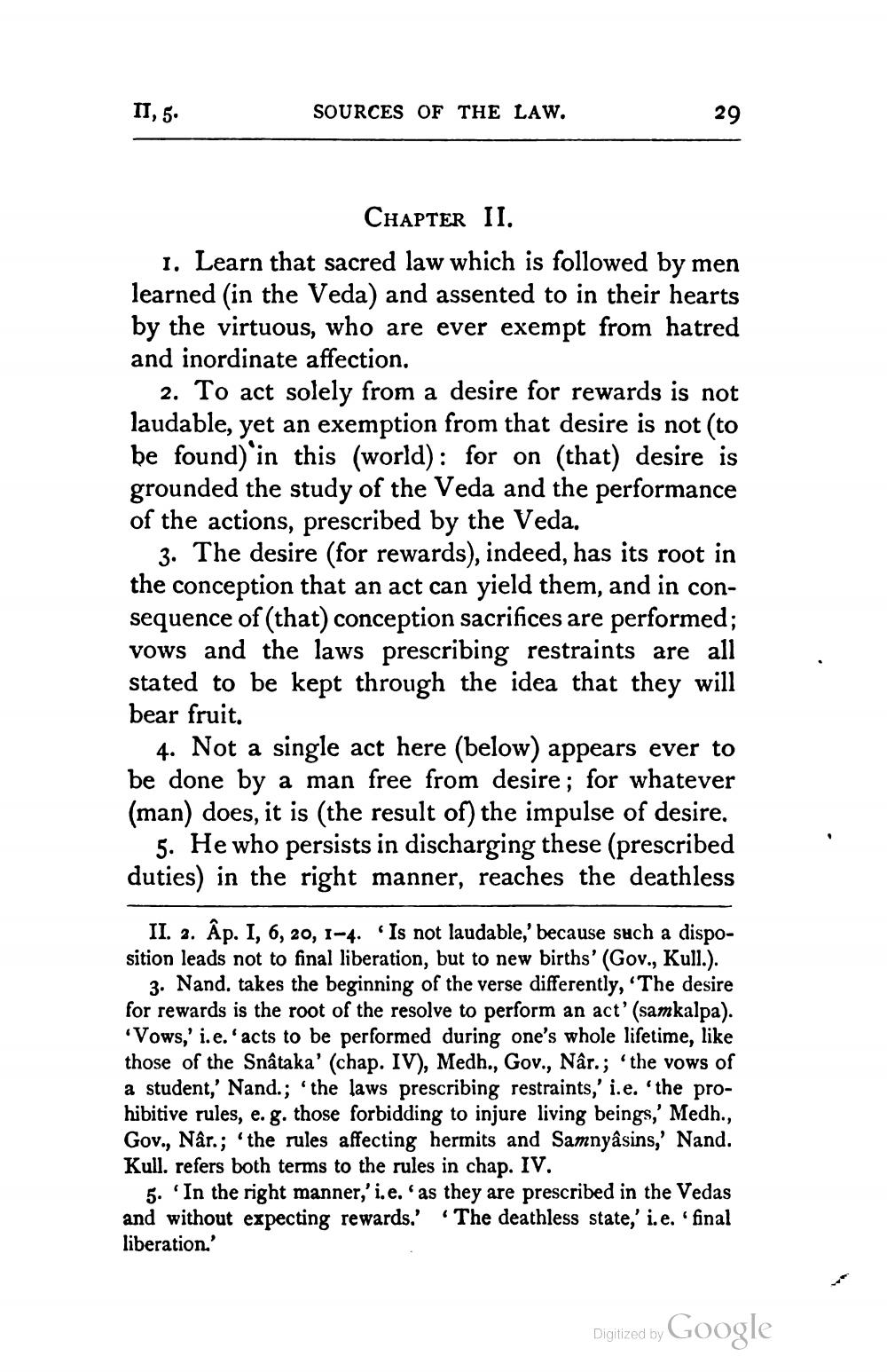________________
II, 5.
SOURCES OF THE LAW.
29
CHAPTER II.
1. Learn that sacred law which is followed by men learned (in the Veda) and assented to in their hearts by the virtuous, who are ever exempt from hatred and inordinate affection.
2. To act solely from a desire for rewards is not laudable, yet an exemption from that desire is not (to be found) in this (world): for on (that) desire is grounded the study of the Veda and the performance of the actions, prescribed by the Veda.
3. The desire (for rewards), indeed, has its root in the conception that an act can yield them, and in consequence of (that) conception sacrifices are performed; vows and the laws prescribing restraints are all stated to be kept through the idea that they will bear fruit.
4. Not a single act here (below) appears ever to be done by a man free from desire; for whatever (man) does, it is (the result of) the impulse of desire.
5. He who persists in discharging these (prescribed duties) in the right manner, reaches the deathless
II. 2. Âp. I, 6, 20, 1-4. Is not laudable,' because such a disposition leads not to final liberation, but to new births' (Gov., Kull.).
3. Nand. takes the beginning of the verse differently, 'The desire for rewards is the root of the resolve to perform an act' (samkalpa). 'Vows,' i.e.' acts to be performed during one's whole lifetime, like those of the Snâtaka' (chap. IV), Medh., Gov., Nâr.; 'the vows of a student,' Nand.; 'the laws prescribing restraints,' i.e. 'the prohibitive rules, e. g. those forbidding to injure living beings,' Medh., Gov., Nâr.; 'the rules affecting hermits and Samnyâsins,' Nand. Kull. refers both terms to the rules in chap. IV.
5. 'In the right manner,' i. e. ' as they are prescribed in the Vedas and without expecting rewards.' 'The deathless state,' i. e. final liberation.'
Digitized by Google




